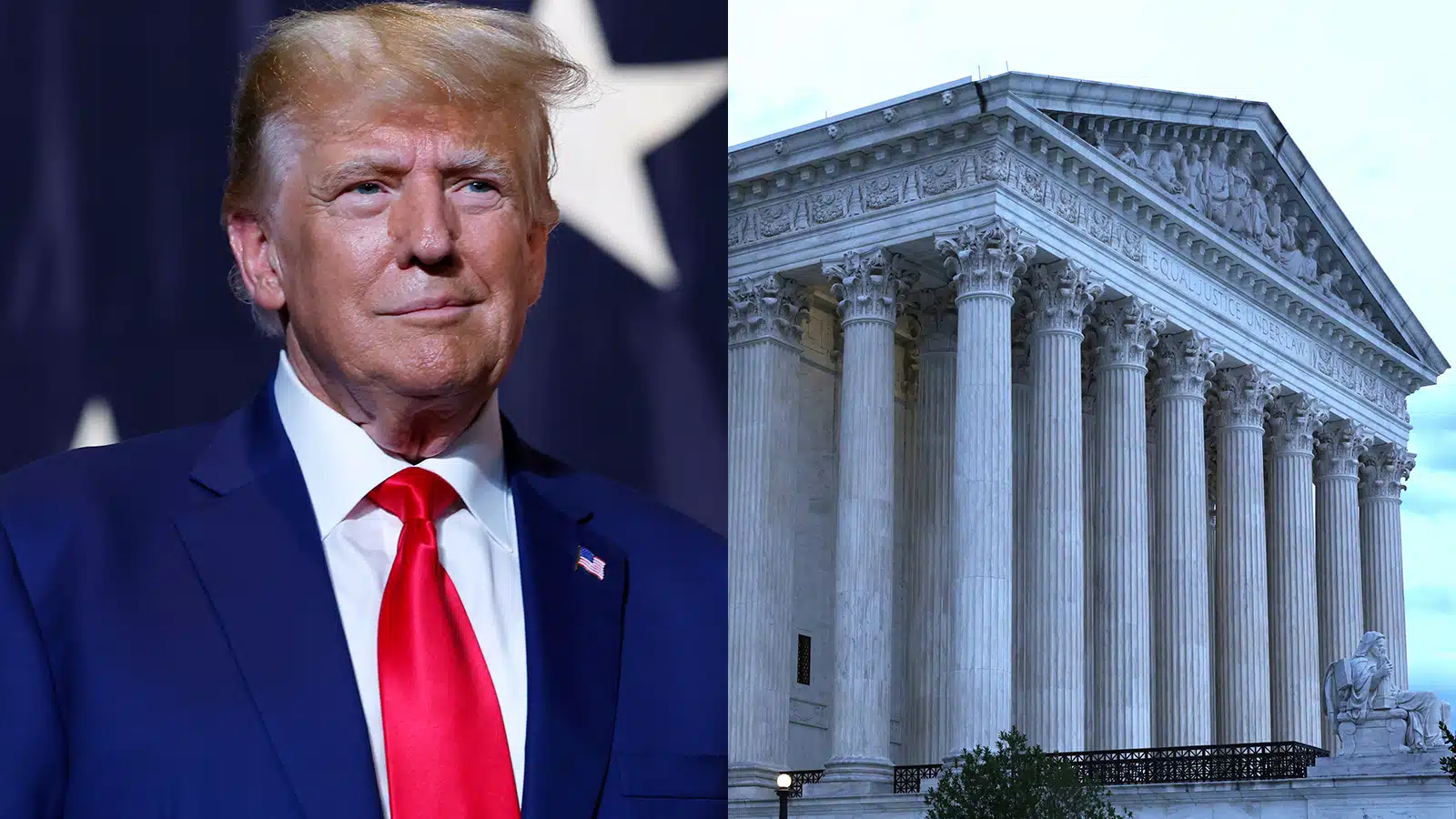Trump Asks Supreme Court To Intervene In Presidential Immunity Appeal

Former President Donald Trump has formally asked the U.S. Supreme Court to step in and help him with his attempt to have his case against him dismissed on the grounds of presidential immunity.
The D.C. Circuit Court of Appeals decided last week that Trump is not exempt from prosecution in the case that special counsel Jack Smith has brought. However, the court postponed issuing the mandate until Monday to give Trump time to petition the Supreme Court to intervene.
The trial of Trump, which District Court Judge Tanya Chutkan postponed while the former president filed his appeal of the decision, will now take place even later as a result of his request to the Supreme Court to pause the mandate while he files his appeal.
Chutkan postponed Trump’s trial from its original March 4 date, stating in early February that the court would “set a new schedule if and when the mandate is returned.” In December, Chutkan denied Trump’s request to have his case dismissed on the grounds of presidential immunity. She put the case on hold when he filed an appeal.
Attempting to keep the trial on track for December, Smith asked the justices of the Supreme Court to consider the issue before the appeals court did, but they turned him down.
“President Trump’s claim that Presidents have absolute immunity from criminal prosecution for their official acts presents a novel, complex, and momentous question that warrants careful consideration on appeal,” the application states. “The panel opinion below, like the district court, concludes that Presidential immunity from prosecution for official acts does not exist at all. This is a stunning breach of precedent and historical norms.”
Trump was present at the January oral arguments held by the D.C. Circuit Court of Appeals.
Judge Florence Pan, a Biden appointee, interrogated Trump’s lawyer during the hearing regarding whether his claim of immunity would exempt a president from prosecution if they directed SEAL Team Six to kill a political rival.
“For the purpose of this criminal case, former President Trump has become citizen Trump, with all of the defenses of any other criminal defendant. But any executive immunity that may have protected him while he served as President no longer protects him against this prosecution,” the panel wrote in the Feb. 6 ruling. “Former President Trump lacked any lawful discretionary authority to defy federal criminal law and he is answerable in court for his conduct.”
Trump’s application notes the D.C. Circuit’s decision “appears to authorize the district court to resume criminal proceedings immediately.”
“President Trump is the leading candidate for President in the 2024 election,” his lawyer’s wrote. “Conducting a months-long criminal trial of President Trump at the height of election season will radically disrupt President Trump’s ability to campaign against President Biden—which appears to be the whole point of the Special Counsel’s persistent demands for expedition.”
“The D.C. Circuit’s order thus threatens immediate irreparable injury to the First Amendment interests of President Trump and tens of millions of American voters, who are entitled to hear President Trump’s campaign message as they decide how to cast their ballots in November,” the application continues.
BREAKING: Trump asks Supreme Court to halt an appeals court ruling denying his bid to dismiss his election interference case based on presidential immunity. pic.twitter.com/sccmQSQEcb
— Katelynn Richardson (@katesrichardson) February 12, 2024
Last week, the U.S. Court of Appeals for the District of Columbia Circuit ruled that Trump is unable to claim immunity from prosecution in his ongoing criminal case because of remarks he made regarding the outcome of the 2020 presidential election.
Trump had attempted to claim that his immunity from prosecution under the Constitution is incidental to his position as a former president.
The D.C. Circuit panel of three judges unanimously dismissed that allegation.
“For the purpose of this criminal case, former President Trump has become citizen Trump, with all of the defenses of any other criminal defendant. But any executive immunity that may have protected him while he served as President no longer protects him against this prosecution,” wrote the court in a per curiam opinion, where the author is not identified. “Former President Trump lacked any lawful discretionary authority to defy federal criminal law and he is answerable in court for his conduct.”
“We cannot accept former President Trump’s claim that a President has unbounded authority to commit crimes that would neutralize the most fundamental check on executive power,” the court ruled, addressing the notion that post-presidential immunity is grounded in a president’s powers under Article II of the U.S. Constitution. “Nor can we sanction his apparent contention that the Executive has carte blanche to violate the rights of individual citizens to vote and to have their votes count.”



